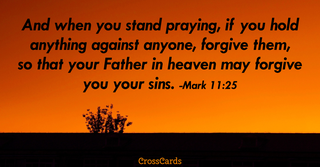- Recent Translations
- All Translations
Markos 11
Share
Settings
Markos 11 Commentary
Chapter 11
Christ's triumphant entry into Jerusalem. (1-11) The barren fig-tree cursed, The temple cleansed. (12-18) Prayer in faith. (19-26) The priests and elders questioned concerning John the Baptist. (27-33)
Verses 1-11 Christ's coming into Jerusalem thus remarkably, shows that he was not afraid of the power and malice of his enemies. This would encourage his disciples who were full of fear. Also, that he was not disquieted at the thoughts of his approaching sufferings. But all marked his humiliation; and these matters teach us not to mind high things, but to condescend to those of low estate. How ill it becomes Christians to take state, when Christ was so far from claiming it! They welcomed his person; Blessed is he that cometh, the "He that should come," so often promised, so long expected; he comes in the name of the Lord. Let him have our best affections; he is a blessed Saviour, and brings blessings to us, and blessed be He that sent him. Praises be to our God, who is in the highest heavens, over all, God blessed for ever.
Verses 12-18 Christ looked to find some fruit, for the time of gathering figs, though it was near, was not yet come; but he found none. He made this fig-tree an example, not to the trees, but to the men of that generation. It was a figure of the doom upon the Jewish church, to which he came seeking fruit, but found none. Christ went to the temple, and began to reform the abuses in its courts, to show that when the Redeemer came to Zion, it was to turn away ungodliness from Jacob. The scribes and the chief priests sought, not how they might make their peace with him, but how they might destroy him. A desperate attempt, which they could not but fear was fighting against God.
Verses 19-26 The disciples could not think why that fig-tree should so soon wither away; but all wither who reject Christ; it represented the state of the Jewish church. We should rest in no religion that does not make us fruitful in good works. Christ taught them from hence to pray in faith. It may be applied to that mighty faith with which all true Christians are endued, and which does wonders in spiritual things. It justifies us, and so removes mountains of guilt, never to rise up in judgment against us. It purifies the heart, and so removes mountains of corruption, and makes them plain before the grace of God. One great errand to the throne of grace is to pray for the pardon of our sins; and care about this ought to be our daily concern.
Verses 27-33 Our Saviour shows how near akin his doctrine and baptism were to those of John; they had the same design and tendency, to bring in the gospel kingdom. These elders did not deserve to be taught; for it was plain that they contended not for truth, but victory: nor did he need to tell them; for the works he did, told them plainly he had authority from God; since no man could do the miracles which he did, unless God were with him.
